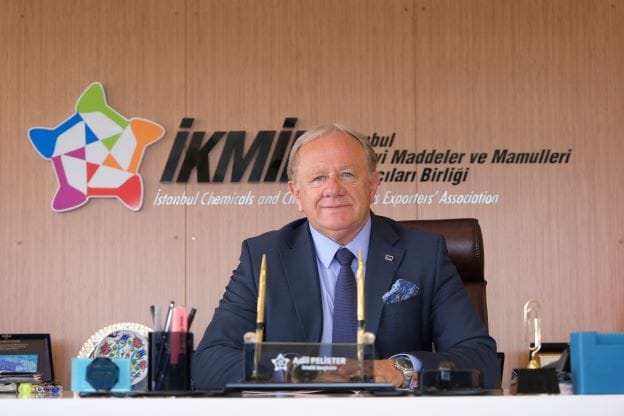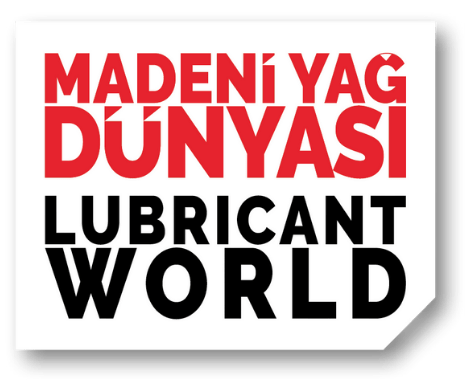The countdown has begun for the Chemistry Technology Center, established by the umbrella organization of the chemical sector, İKMİB. Preparations have almost been finalized for the Chemistry Technology Center, which is set to be a turning point for the Turkish chemical sector with its technical infrastructure, extensive opportunities, and privileged services offered to exporters. We visited İKMİB President Adil Pelister to learn more about this exciting project and to gain insights and evaluations that guide the business world on sectoral issues.
The Chemistry Technology Center is preparing to launch at the Bilişim Vadisi Kocaeli Campus. The center aims to provide all the services exporters need in one location. The Chemistry Technology Center will help speed up and streamline foreign trade through its testing and certification services for exporters, ultimately preventing the outflow of foreign exchange and contributing to the Turkish economy. Additionally, the Chemistry Technology Center will energize the Turkish chemical sector by offering services such as research and development (R&D) studies, national and international project subsidies, an incubation center, and a digital library.
We interviewed Adil Pelister, the President of İKMİB, about the significance of the Chemistry Technology Center for the industry and the opportunities it will provide to our companies in global competition. Pelister discussed the lubricant sector and the efforts made by İKMİB in aligning with the European Union Green Deal. He also emphasized the importance of establishing the Turkish Chemicals Agency.
The Chemistry Technology Center, realized by İKMİB, has generated enthusiasm within our industry. Could you please provide information about the technical infrastructure, equipment, and amenities at the Chemistry Technology Center?
The Chemistry Technology Center is an important and valuable project for the chemical sector, established by the Istanbul Chemicals and Chemical Products Exporters’ Association (İKMİB) in line with its 2030 vision to create a new chemical ecosystem. It will be the first of its kind in Turkey. The center will be located in a 4-story building at the Bilişim Vadisi Kocaeli Campus, covering an area of approximately 6100 square meters. This includes a 1650 square meter entrepreneurship and incubation center with special infrastructure for entrepreneurs. The Chemistry Technology Center will house laboratories for comprehensive instrumental, chemical, microbiology, molecular biology, physical, and mechanical analyses. We are meticulous in selecting devices and analysis methods of the highest quality to meet the needs of various sectors. This will allow us to provide timely responses to the demands of different industries.
Thanks to our well-equipped and experienced team, we strive to deliver not only fast but also high-quality service. Our team will support companies in advanced R&D projects and participate in both national and internationally supported initiatives. By providing the sector with efficient and high-quality service, we aim to expedite export processes and contribute to the growth of export revenues through the export of high-value-added products.
The Chemistry Technology Center will not only serve as a testing and laboratory center, but also provide all services needed by our exporters in one location. In addition to test and analysis services, our center will offer certification and certification consultancy, conduct product and process development studies through joint R&D projects, assist companies with national and international project subsidies, provide guidance on regulations in Turkey and target export countries, and deliver training on these matters. Furthermore, we will establish a digital library to provide access to sector-specific scientific publications for our users and the scientific community.
What will be the Chemistry Technology Center’s contribution to our industry and the Turkish economy in global competition?
Our exporting companies currently rely on foreign companies for most of the testing, analysis services, and certificates required by their customers or the countries they export to. We aim to help our companies save time and money by offering these services locally, thus preventing the outflow of foreign currency from our country. Our Chemistry Technology Center will cater to the needs of various sectors, including plastic, rubber, cosmetics, and paint, by providing these essential services.
Our exporters are facing difficulties in accessing expensive equipment and analyses for their R&D studies. It is also challenging to hire highly educated and experienced professionals. Through our center, we aim to facilitate access to both the necessary human resources and expensive R&D equipment and analysis tools for our exporters. Additionally, we will provide consultancy services to help our exporters take advantage of national and international project subsidies.
The Chemistry Technology Center will offer speed and convenience to our exporters while preventing foreign exchange outflow by providing the testing, analysis, and certification services required in international trade.
The chemical sector plays a crucial role in Turkey’s development. How do you assess the position and performance of the lubricant sector within the chemical industry?
In 2023, the chemical sector exported $30.5 billion, while the mineral fuels, mineral oils, and products sector exported $8.3 billion, accounting for 27% of our total chemical exports. This sector holds the second highest position in terms of exports. In the first half of this year, our chemical sector’s exports increased by 8% to reach $15.8 billion. In the January-June period this year, our mineral fuels, mineral oils, and products sector exported $4.9 billion, representing 31% of our total chemical sector exports with a 41% increase compared to the previous year. Despite a decrease in the use of mineral oils in automobiles due to the rise of electric cars, we anticipate continued growth in the sector due to their usage in other industries and heavy vehicles. It’s worth noting that despite the emergence of electric vehicles, mineral oil will persist in production and use in various industries. Additionally, the demand for coolants for electric cars will also contribute to the dynamism of this industry.

As the umbrella organization for our sector, İKMİB, you are leading the adaptation process to the European Green Deal. Which priority steps should our stakeholders in the lubricants sector take regarding sustainability and circular economy?
For companies to thrive in the competitive business landscape, they need to prioritize transitioning to a green economy. This involves addressing issues such as greenhouse gas emissions, energy and water management, product design and recycling, chemical safety, environmental impact management, and emergency preparedness and response. We, as the chemical industry, actively support all 17 Sustainable Development Goals of the UN. We have identified 8 goals, 5 primary and 3 secondary, that will impact our sector the most. To establish a sustainable chemical industry on 4 main pillars, we have outlined our responsibilities in the “Chemical Industry Sustainability Action Plan,” developed with a comprehensive vision. All 16 sub-sectors must launch sustainability initiatives focusing on these four activities: Create Low Carbon Economy, Conserve Resource Efficiency, Investment Needs, and Care for People and the Planet.
The use of mineral oils in industries is important. Recycling and reusing mineral oil, which becomes waste after use, is crucial for the sector’s development. Considering the EU Green Deal, it is important to ensure the recycling of oils to meet the needs of a circular economy. In this regard, investments in recycling companies are also essential. It is also essential to produce special chemicals in our country.
I believe that establishing the Turkish Chemicals Agency will be highly beneficial. We have already begun working on this issue. It is crucial for us to look ahead in the chemical industry and to be able to create a medium and long-term plan. This is also essential for the sustainable development of the sector as well as for our country’s growth. The chemical industry is a strategic sector that supplies raw materials, semi-finished products, or finished products for 27 different sectors. There is no sector that chemistry does not impact. Therefore, we aim to better convey the significance of chemistry.
What advantages and opportunities will the transition to a circular economy bring to the chemical industry? What contributions do you expect it to make to the Turkish economy in the medium and long term?
Sustainability is the outcome of a process that spans roughly 50 years. Sustainability, which involves designing the future without compromising the present, encompasses technology, society, the environment, and the economy. I believe it is incredibly important because these four aspects complement each other. Sustainability involves disruptive innovations. Technological digitalization, environmental factors such as global warming and the resulting pollution, societal challenges like population density pressure on urban areas and associated food issues, and green and circular economies all present numerous problems and potential solutions that can transform risks into opportunities.
The introduction of new practices in energy and environmental policies, including clean energy, presents both opportunities and threats. The development of new industries in line with these policies provides an opportunity while the risk of businesses that cannot comply with environmental policies being closed due to disruptive innovations poses a threat.
Investors who focus on long-term strategies and consider ESG (Environmental, Social, Governance) risks in their sustainability efforts, upgrade their technological infrastructure to emphasize innovation and R&D in production, and embrace digitalization and the circular economy will gain a competitive edge. Preparing for this transformation is crucial to minimizing the impact of measures like the Border Carbon Tax, which will be implemented by Europe – to where we export the most – as part of the Green Deal and will affect our chemical industry, especially the agriculture and fertilizer sectors. Recycling and the circular economy are vital components of the green transformation, and our companies need to prioritize these issues.
The circular economy model, which supports sustainable development, offers numerous benefits for both present and future, such as:
- Efficient use of resources through recycling and reduced consumption,
- Improved efficiency in material and production areas by re-using resources,
- Development of innovative products and services with a circular transformation perspective,
- Promoting increased environmental awareness through responsible production and consumption,
- Conserving energy and reducing emissions through efficient use of resources,
- Preserving the natural balance by minimizing environmental impact.
In addition to these benefits, we must adopt sustainable practices to address the global issue of climate change.
How are our lubricant companies preparing for the shift to electric vehicles?
The mineral oil sector, an important branch of the fuel industry, is transforming with the introduction of electric vehicles into our lives. This development will primarily impact the fuel side, but it will also have implications for the mineral oil sector. Since electric vehicles do not have internal combustion engines, engine oil is not used. The need for engine oil will only continue for internal combustion engines found in hybrid vehicles. Gear oils (if there is a transmission), antifreeze or cooling oil as battery coolants, and brake fluids will continue to be used in electric vehicles.
The mineral oil market is comprised of various types of oils, with passenger vehicle oils accounting for approximately 16% of the market. Passenger vehicle oils are also known as oils sold at fuel stations or changed in car care services. The remaining 84% consists of heavy vehicle oils, industrial oils, gear oils, and transformer oils. Although the transition to electric vehicles primarily affects passenger vehicles, it’s important to note that oils used in heavy vehicles and infrastructure play a significant role in the market, constituting a share of 20-25%. Considering that a large portion of transportation in Turkey is conducted by trucks, the use of heavy vehicle oils is expected to continue.
As long as infrastructure projects continue, there will be significant consumption of mineral oil in construction activities. Mineral oils used by construction equipment constitute nearly 25% of the market. Particularly with Turkey’s growth in heavy industry, the iron-steel and cement sectors, population expansion, and increased export opportunities, mineral oil consumption will continue to rise.
In the near future, we do not foresee any major developments that will significantly impact the lubricant market. We anticipate a market decrease of around 2%. Looking ahead, companies are actively engaged in innovation and R&D efforts to develop lubricants suitable for hybrid and electric vehicles. Additionally, there is a focus on sustainability with studies being conducted to develop carbon-neutral lubricants that can be used in the automotive sector and various other industries.




